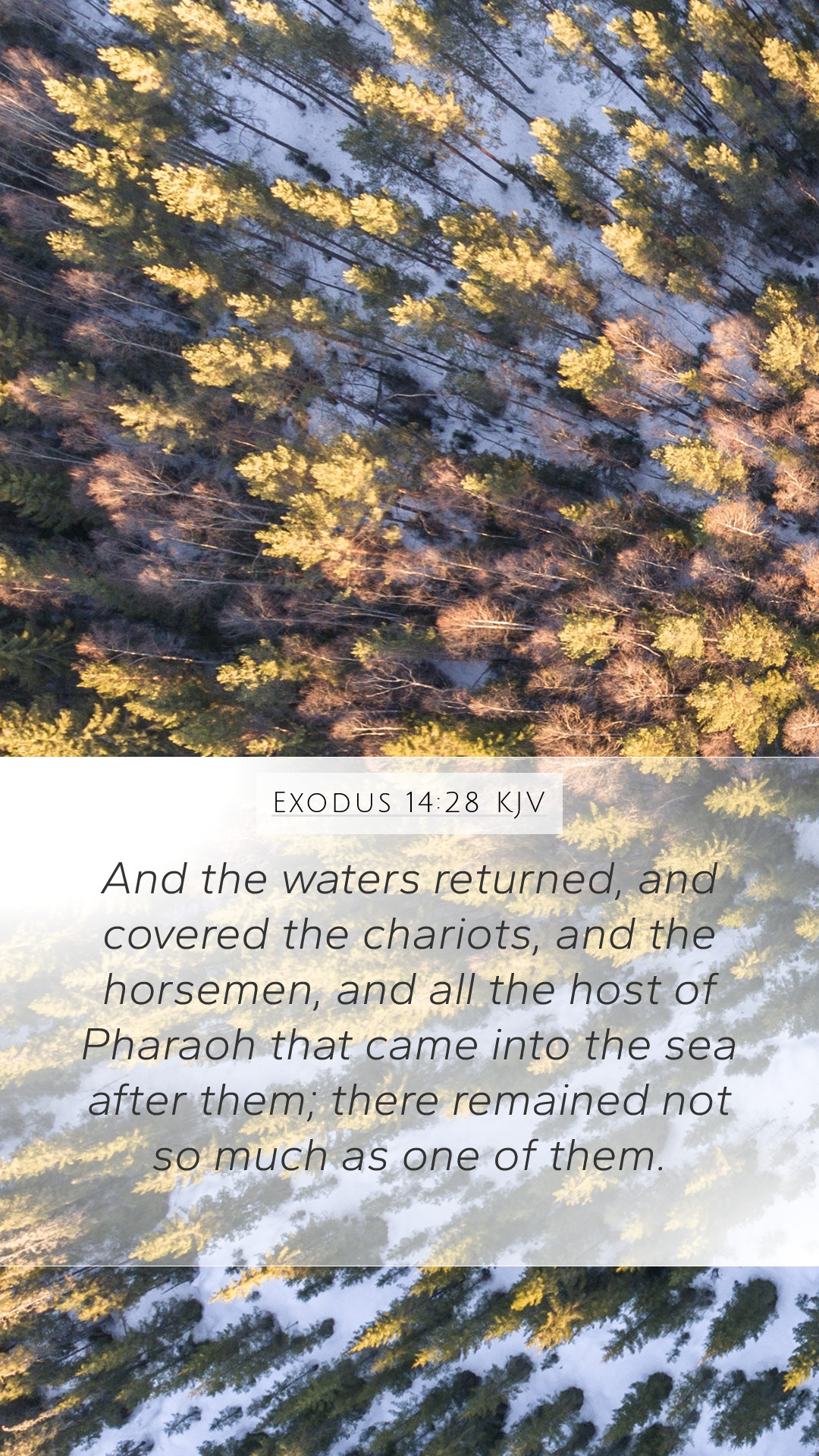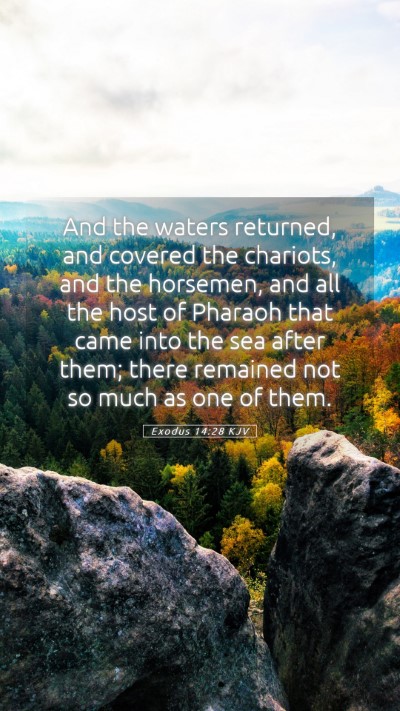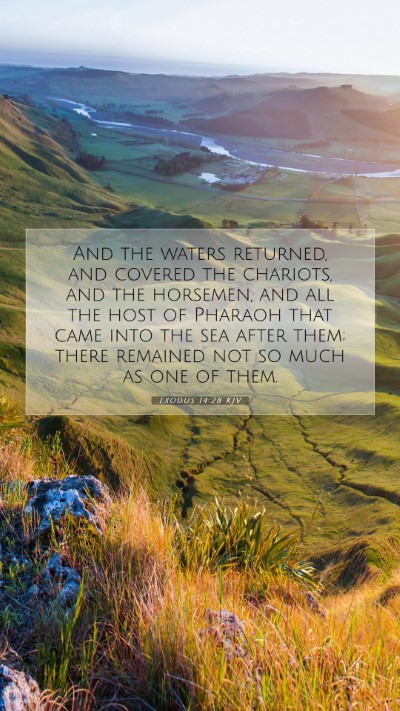Understanding Exodus 14:28
Exodus 14:28 states: "And the waters returned, and covered the chariots, and the horsemen, and all the host of Pharaoh that came into the sea after them; there remained not so much as one of them."
This powerful verse marks a significant moment in the biblical narrative, illustrating the culmination of the struggle between God and Pharaoh, culminating in the deliverance of the Israelites from Egyptian bondage.
Bible Verse Commentary
Upon analyzing this scripture, we can extract several profound meanings from esteemed public domain commentaries.
- Matthew Henry: Henry views this verse as the divine judgment executed upon Pharaoh and his army. He emphasizes that the waters symbolically represent God's power to save His people while simultaneously executing wrath upon their enemies. Henry notes that the complete destruction of Pharaoh’s forces serves as a potent reminder of the efficacy of divine intervention in salvation.
- Albert Barnes: Barnes provides a thorough commentary on the significance of the event, highlighting the faithfulness of God to His promises made to the Israelites. He explores the notion of God's omnipotence and the futility of opposition against His will, which is vividly demonstrated by the complete annihilation of Pharaoh’s army in the returning waters. Barnes points out that the event should instill fear and reverence towards God, not only in Israel but for all nations.
- Adam Clarke: Clarke expresses a theological interpretation, elaborating on the metaphorical aspects of the waters returning. He posits that it symbolizes the washing away of sin and oppression, embodying a cleansing aspect in the spiritual journey of the Israelites. Clarke also draws connections with how this event encapsulates the larger theme of redemption throughout Scripture, portraying God’s readiness to rescue and safeguard His chosen people.
In-depth Bible Verse Analysis
When exploring the historical context of this passage, it’s evident that the Israelites had witnessed a miraculous escape from slavery through the parting of the Red Sea, highlighting God's miraculous involvement in their liberation.
This verse serves as a pivotal moment in Biblical history, representing the triumph of faith over tyranny, as well as establishing a foundation for later themes of deliverance found throughout Scripture.
Significance and Application of Exodus 14:28
This verse encourages believers to reflect on the nature of God’s deliverance and His sovereignty over seemingly insurmountable odds. It urges individuals to trust in God’s power during trials, reinforcing that His purposes will prevail.
In a practical context, individuals can draw parallels to their personal struggles and the assurance that divine intervention is possible when placed in the hands of God. The assurance found in this verse can foster deeper faith and confidence in the plan God has for every believer’s life.
Bible Cross References
- Exodus 14:21-22: The parting of the Red Sea where God instructed Moses to stretch out his hand over the sea to create a path for His people.
- Isaiah 43:16: "Thus says the Lord, who makes a way in the sea and a path in the mighty waters."
- Psalms 136:15: "But overthrew Pharaoh and his army in the Red Sea, for His mercy endures forever."
Conclusion
In summary, Exodus 14:28 illustrates God's unfathomable power and His covenantal faithfulness to His people. Through a combination of historical context, scriptural interpretations, and practical applications, this verse stands as a cornerstone of faith in the narrative of God's redemptive work. Whether for personal reflection or group Bible study discussions, it provides fertile ground for understanding the profound depths of God’s character and His unwavering commitment to deliver His people.
For those involved in Bible study groups, this examination of Exodus 14:28 can facilitate discussions on bible study topics related to deliverance, faith, and divine intervention.


